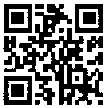| Photograph courtesy of Joseph A. Carr |
- The more realistic the set up, the more impossible monitoring
- Students know each other & understand each others' short cuts/linguistic tics
- Students are expecting this call
- There is usually some kind of hierarchy in the group
- Not always possible to use phones
- Work arounds, such as Skype or Google Hangouts firewalled
- Odd number of students
Obviously, making phone calls & answering them at the office/on the road are everyday working situations, and vitally important that the user masters the absolute basics very well. There are stock phrases to be used, which to sound professional & proficient just can't be mangled. We need to hear the right phrases to trigger the required responses & manage the conversation forwards in a predictable fashion.
Things learners do that kill a telephone exchange:
- get the giggles
- panic attack & go silent
- start nodding or just make sounds that other cultures do not understand
- use their own language as much as possible
- repeat poor pronunciation more slowly
- lack empathy with the listener's level of English
So how to do this in class?
Well, this may sound stupid, but use your phones! But no, I don't mean start calling each other - recipe for multiple overlapping snippets & malfunctions which you cannot control. The answer is still BYOD, though. Although slow adopters in Japan, most of my business classes now boast mostly smart phones.
The preparation:
I created a set of very simple phrases I wanted the receiver of a call to use, on Quizlet (here). In this instance, I took out a key word or words. We had already listened to a short dialogue and filled in the blanks, as you do. I asked students to open up the set in the Quizlet app. A few stunned faces (I have only asked them to install the app every week since May)...mini hiatus while 'expert' users led their less coherent colleagues along the app store, password, install, register, join the class dance. OK, itself a learning moment!
The set up:
Reassuring nods as they scrolled across the flashcard function. Easy. Race each other in mad screen-tapping game mode (scatter) against the clock...pecking order established?
The Challenge:
I asked students to use the 'Learn' feature. 'Too hard!' - needed to toggle the 'term' button so they only had to write in the key word(s) and not the rest of the phrase!
Realisation:
Typing too slowly/deliberately - copying from books open. And why are we typing a telephone dialogue? USE THE MICROPHONE to fill in the answers/blanks!
Reaction:
'Cool! I don't have to type stuff', shortly followed by 'Oh, stupid phone doesn't understand me. I said "and you" but it reads "Andrew"... the dominant students cockily barking at their phones and reacting indignantly at the jumbled message received, looking around to see more deliberate & gentle pronunciation making better progress.
'Cool! I don't have to type stuff', shortly followed by 'Oh, stupid phone doesn't understand me. I said "and you" but it reads "Andrew"... the dominant students cockily barking at their phones and reacting indignantly at the jumbled message received, looking around to see more deliberate & gentle pronunciation making better progress.
Relaxation:
At this point all I needed to do was put my hands in the air and let the penny drop. Talk to the phone nicely! And as the teacher, I am totally absolved of any blame or shame game in picking on students' intonation, enunciation, elision etc. Fine tune your own pronunciation! Students wandered off to find quieter corners, they practiced and practiced more than they ever have done before with any dialogue - and importantly, with phone in hand & an unknown 'partner'.
We didn't get to the other half of the phone call (the caller) which was just fine with me. Nail the most important bits first, then we'll get adventurous!
Development:
- 'Harder' Quizlet sets (though of the same content/conversation), with caller 'terms' to match with receiver 'definitions'. This would really challenge sentence level pronunciation, with stress & intonation features etc
- Use other apps eg Dragon Dictation to polish pronunciation further, again, without the teacher being involved in critique mode, but enabling/suggesting tweaks
Conclusion:
The students 'got it'. If their phones won't understand them, nobody else is going to! They needed to moderate their output to suit their listener, and not be critical of the listener eg 'He's from China' or something. Now they can see another function for their smart phones - a most excellent phone training device.
Jim was teaching from International Express Elementary (OUP) 3rd Ed. when this hallelujah moment struck. Check out "LunaTeacher" on Quizlet for plenty more creative uses of the site.





No comments:
Post a Comment
By all means leave your comments - please do not be offensive, abusive, or rude. We ask you to sign your comment as well, please.